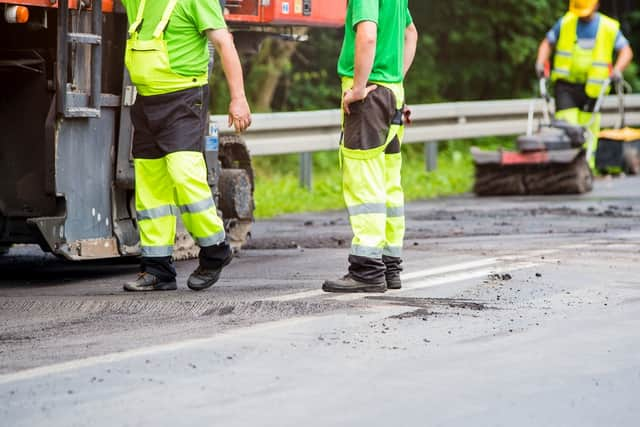Pothole damage: how to claim compensation for damage to car - and how to report a fault in the road to council


The UK’s roads are at crisis point, with councils spending millions each year compensating drivers affected by potholes and other surface damage.
The Asphalt Industry Alliance estimates that more than £12 billion is needed just to tackle the current backlog of pothole and surface repairs and new figures reveal that councils and rahave paid out nearly £13 million in compensation for damaged vehicles since 2018.
Advertisement
Hide AdAdvertisement
Hide AdThe latest data from the RAC shows that callouts to pothole-related damage are up by a fifth and insurers have reported a spike in claims for damage such as buckled wheels and broken suspension in recent years.
While insurers will often pay out for such damage, in some cases drivers can pursue the local council or road authority to cover the cost of any repairs


Who is responsible?
In order to make a claim for pothole damage you need to identify who is responsible for the road where the damage occurred.
In general, local councils are responsible for smaller B roads and urban roads while national agencies look after A roads and motorways.
Advertisement
Hide AdAdvertisement
Hide AdYou can identify the relevant local council by entering the postcode on the Government website here, and it will provide a link to the local authority.
For issues on trunk roads and motorways there are different agencies for each country.
- England - National Highways
- Wales - Traffic Wales
- Scotland - Traffic Scotland
- Northern Ireland - The Department for Infrastructure
How to report a pothole
Councils can reject a compensation claim if they are not aware of the defect so you can help yourself and other drivers by reporting any potholes you encounter, even if you haven’t suffered any damage.
In England if the problem is on an A road or motorway you should report it to National Highways via its reporting page here.
Advertisement
Hide AdAdvertisement
Hide AdIn Wales, you should report it via the Traffic Wales website.
For council-maintained roads in England and Wales you can enter the postcode of the road in question on the Government’s pothole reporting page.


In Scotland, defects on A roads and motorways should be reported to Traffic Scotland on 0800 028 1414, while you can report a problem to the local council via the mygov.scot page here.
In Northern Ireland you can report potholes via the NIDirect website.
Claiming for pothole damage
Advertisement
Hide AdAdvertisement
Hide AdIn order to claim compensation for damage caused by a pothole you’ll need to use the relevant authority’s claims process, detailed on the above websites. These are all slightly different but in general will require similar information.
You should photograph the damage to your vehicle and, if it is safe to do so, the pothole that caused the damage. You should try to get a close-up of the pothole as well as a wider image of it in the surrounding area. Don’t try to photograph a pothole on the motorway. This is both dangerous and illegal.
Make a note of the date, time and exact location of the incident and witness details, if you have any. Also note as many details about the pothole as possible including its size, depth and position on the road.
Get multiple quotes for the repair work. If the repair is urgent, make sure you keep detailed invoices for any work already carried out , otherwise submit written estimates for the cost of the repair work.
Advertisement
Hide AdAdvertisement
Hide AdOnce you have submitted your claim, the authority may refund all or part of your costs or may reject your claim entirely.
If you are offered a partial refund, consumer experts Which? suggest you can try negotiating over the cost of repairs but remember you’re unlikely to be compensated for any losses outwith the damage to your vehicle.
If your claim is rejected you can appeal or pursue the matter via the small claims court but be aware this can become costly and councils have legal protection against claims if they can prove the fault hadn’t been reported or picked up by their own inspections.
Comment Guidelines
National World encourages reader discussion on our stories. User feedback, insights and back-and-forth exchanges add a rich layer of context to reporting. Please review our Community Guidelines before commenting.
